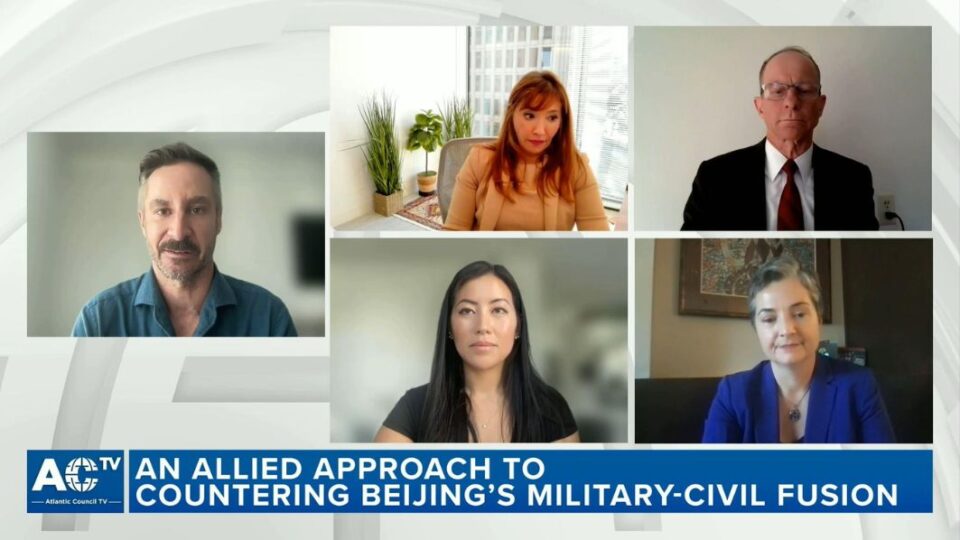This discussion will examine Beijing’s MCF practices and help shine a light on the extent to which MCF is succeeding. It will also offer insights on how the US and its allies and partners can best counter MCF.
A conversation with
Nazak Nikakhtar
Commissioner for Export Controls
Global Tech Security Commission
Dave Stillwell
Commissioner for Defense
Global Tech Security Commission
Claire Chu
Senior China Analyst
Janes
Anna Puglisi
Senior Fellow
Center for Security and Emerging Technology
Moderated by
Ryan Heath
Global Technology Correspondent
Axios
Opening remarks
How can the US and its partners best counter Beijing’s ambitions to use its civilian companies to bolster its military?
Please join the Global Tech Security Commission (GTSC) – a joint partnership between the Atlantic Council’s Global China Hub and Krach Institute for Tech Diplomacy at Purdue – on September 27 at 2:00pm ET for a virtual panel discussion on the how the US and its allies should think about and counter Beijing’s ambitions to modernize its military through Military-Civil Fusion.
China’s defense sector is largely controlled by state-owned enterprises insulated from its commercial economy. However, Beijing has increasingly sought to bolster its military capabilities and modernize the People’s Liberation Army through its civilian sectors.
A key pillar of these efforts, Military-Civil Fusion (MCF) encourages Chinese civilian companies to acquire and pass along to defense firms dual-use technologies from foreign sources rather than developing them indigenously (through both legal and illegal means). MCF has had mixed success and has largely relegated the civilian tech sector as a pass-through entity rather than serving as the source of technology and expertise. Nonetheless, Beijing is likely to continue using MCF to advance its military ambitions, and Washington and its allies must therefore pay close attention to it.


